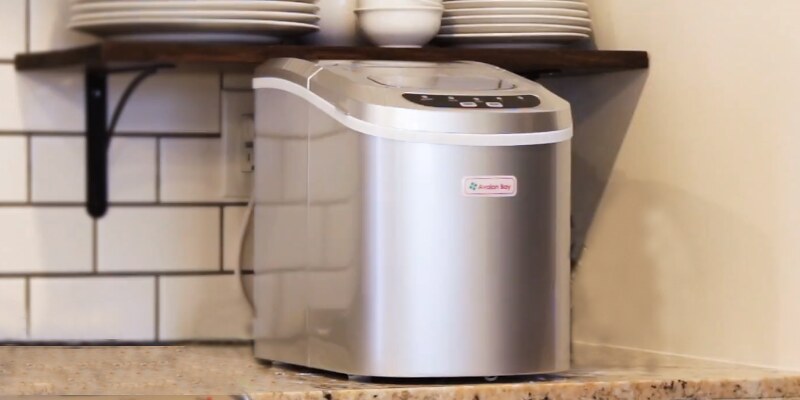A commercial ice maker machine is an essential piece of equipment in various industries, including restaurants, hotels, healthcare facilities, and supermarkets. It provides a steady supply of ice for various applications, from refreshing drinks to preserving perishables. To ensure the longevity and efficiency of your ice maker, regular maintenance is key. In this article, we’ll explore essential tips and guidelines for maintaining your commercial ice maker machine.
1. Read the Manufacturer’s Manual:
Contents
Before you start any maintenance procedures, familiarize yourself with the manufacturer’s manual that comes with your ice maker. This document contains crucial information specific to your machine, including maintenance guidelines, troubleshooting tips, and warranty information. It’s your first point of reference for any issues or questions related to your ice maker.
2. Clean the Ice Bin and Dispensing Area:
Regularly clean the ice bin and dispensing area of your ice maker to prevent the buildup of mold and bacteria. Use a solution of warm water and a mild detergent to clean the interior and exterior surfaces Undercounter Commercial Ice Maker Machine. Rinse thoroughly to remove any soap residue. Sanitize the bin and dispenser with a food-safe sanitizer to ensure the ice remains free from contamination.
3. Check the Water Filtration System:
If your ice maker is equipped with a water filtration system, regularly check and replace the filters according to the manufacturer’s recommendations. A well-maintained water filtration system ensures the quality and taste of the ice, as it removes impurities and odors from the water.
4. Inspect the Water Inlet Valve:
The water inlet valve is responsible for supplying water to the ice maker. Over time, it can develop mineral deposits that affect its performance. Inspect the valve for signs of buildup and clean it if necessary. Additionally, consider installing a water softening system to reduce the mineral content in the water, which can help prolong the life of your ice maker.
5. Clean the Condenser Coils:
The condenser coils in your ice maker help dissipate heat, allowing the machine to operate efficiently. Dust and dirt can accumulate on the coils, reducing their ability to release heat. Regularly clean the coils by using a soft brush or compressed air to remove debris. Clean coils help maintain optimal ice production and energy efficiency.
6. Check and Clean the Evaporator:
The evaporator is the component responsible for freezing the water and forming ice. Over time, mineral deposits and scale can accumulate on the evaporator, reducing its efficiency. Regularly check and clean the evaporator according to the manufacturer’s recommendations. You may need to use a nickel-safe ice machine cleaner to remove stubborn scale deposits.
7. Inspect the Ice Cutter Grid:
The ice cutter grid is responsible for cutting the ice into individual cubes or shapes. Regularly inspect the grid for any obstructions or damage. If you notice issues with the grid, address them promptly to avoid disruptions in ice production.
8. Maintain the Ice Bin Level Control:
The ice bin level control is a crucial component that ensures the ice maker produces the right amount of ice to maintain a consistent level in the bin. Regularly inspect and clean the control system to prevent malfunctions that can lead to ice overproduction or underproduction.
9. Regularly Replace Gaskets and Seals:
Gaskets and seals on the doors and access panels of your ice maker help maintain temperature consistency and prevent warm air from entering the machine. Inspect these gaskets for wear and tear, and replace them when necessary to ensure a tight seal.
10. Clean and Sanitize the Ice Scoop and Holder:
The ice scoop and holder should be regularly cleaned and sanitized to prevent contamination. Use hot water and a food-safe sanitizer to clean the scoop, and ensure it is stored in a clean, dry location to prevent bacterial growth.
11. Test the Ice Quality:
Regularly test the quality of the ice produced by your machine. Ice should be clear, odorless, and tasteless. If you notice any off-flavors or odors, it may be a sign of a need for more thorough cleaning or water filtration maintenance.
12. Schedule Professional Maintenance:
While regular in-house maintenance is crucial, it’s also important to schedule professional maintenance for your ice maker. Consider a service agreement with a reputable technician who can perform comprehensive maintenance and address any issues that may not be apparent during routine cleaning. A professional can inspect critical components, calibrate settings, and ensure your machine operates at peak efficiency.
13. Keep Records:
Maintaining a record of your ice maker’s maintenance history is essential. Document each maintenance task, including cleaning, filter replacements, and professional servicing. This record can help you track the machine’s performance, troubleshoot problems, and demonstrate compliance with health and safety regulations if necessary.
14. Educate Staff:
Proper maintenance and cleaning procedures are only effective if your staff is well-informed. Ensure that your employees understand the importance of maintaining the ice maker and follow the recommended cleaning and sanitization protocols.
15. Ice Quality and Safety:
Maintaining ice quality and safety is a top priority. If you ever suspect that the ice from your machine is contaminated or compromised, it’s important to discard it and investigate the cause to prevent any potential health hazards.
By following these maintenance tips, you can ensure that your commercial ice maker machine operates efficiently, produces high-quality ice, and remains a reliable asset to your business. Regular maintenance not only extends the life of your machine but also helps maintain the safety and satisfaction of your customers and patrons. Remember that proper maintenance is an investment in the long-term success of your business and in the quality of the products and services you offer.

